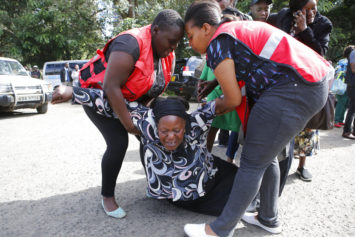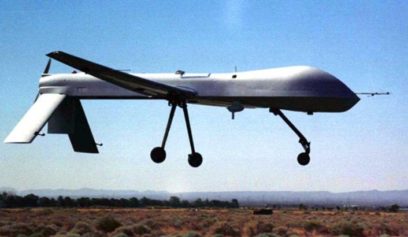In a rare move, several countries in West Africa have agreed on a plan to send 3,300 troops into Mali to stabilize the neighboring country and topple the Islamist extremists who are currently imposing a harsh form of sharia law on its citizens.
The situation in Mali has drawn the concern of the whole world because the country has been overtaken by al-Qaeda. A few weeks ago, President Obama sent U.S. Secretary of State Hillary Clinton to Algeria to talk to Algerian President Abdelaziz Bouteflika about backing West African efforts to stop Al-Qaeda in the region.
According to Clinton, AQIM, the name of the al-Qaeda group, is working with other extremists to undermine democratic transitions in North Africa, and played a role in the September attack on the U.S. mission in the Libyan city of Benghazi that killed Ambassador Chris Stevens and three other Americans.
France has begun sending in drones to do surveillance missions in northern Mali because it is extremely remote. Pentagon officials have said the U.S. has also been using drones for several months to assess the situation. Up to this point, the U.S. has been content to help others in the region fight against the militants.
The Economic Community Of West African States (ECOWAS) held a summit to discuss the issue of Mali, with the group’s chairman saying it was ready to use force to “dismantle terrorist and transnational criminal networks”.
The soldiers would come mainly from Nigeria, Niger and Burkina Faso, although Ivory Coast President Alassane Outtara told reporters in Nigeria’s capital Abuja that other West African countries and two or three non-African states may also contribute forces.
Outtara said the soldiers could be deployed as soon as the UN approved the military plan, which he hoped would happen by late November or early December.
The plan covers a six-month period, with a preparatory phase for training and the establishment of bases in Mali’s south, followed by combat operations in the north, according to Reuters.
The United States had been in talks with France to take steps to bring the region back under the control of the country’s central government. France has begun sending in drones to do surveillance missions in northern Mali because it is extremely remote. Pentagon officials have said the U.S. has also been using drones for several months to assess the situation.
When the UN Assistant Secretary-General for Human Rights Ivan Simonovic returned from Mali several weeks ago, he reported to the world community that Islamist militias had imposed a harsh version of Sharia law on the areas they controlled, drastically affecting the lives of women in particular. Mali residents in the north told him of forced marriages, forced prostitution, widespread rape, and women being sold as “wives” for less than $1,000.
In interviews in French media, French Defense Minister Jean-Yves Le Drian said yesterday that if nothing was done to defuse the situation in the former French colony, it would make Mali a “terrorist sanctuary”.
“In Mali, it is our own security that is at stake: the security of France, the security of Europe, because if we don’t move a terrorist entity will take shape which could hit this or another country, including France, and including Europe,” he said.
France has not pledged troops, but said it will offer support in the region.
But terrorism and security advisor Kamal Rezzag Bara, a top advisor to Algeria’s president, said over the weekend that Mali is an internal crisis and an international military intervention would not work.
“The question in Mali is an internal matter and there is no need to further internationalise it,” said, according to the Associated Press.
On October 12, the UN gave African leaders 45 days to draw up a plan for military intervention to retake the north.


